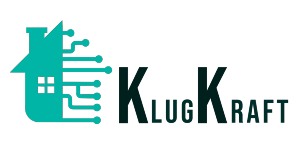In India, where the demand for energy continues to rise amidst growing urbanization and industrialization, the need for sustainable living solutions has never been more urgent. Energy-efficient home automation offers a promising solution by leveraging advanced technologies to optimize energy usage, reduce wastage, and promote environmental stewardship. Let’s explore how energy-efficient home automation is reshaping residential living in India and empowering homeowners to embrace sustainability while enjoying the benefits of modern technology.
Smart Lighting Solutions
- Energy-efficient lighting is a cornerstone of home automation in India, with smart lighting solutions offering significant energy savings and environmental benefits. LED bulbs, integrated with smart control systems, allow homeowners to adjust brightness levels, schedule lighting routines, and even dim lights based on natural light conditions.
- Motion sensors and occupancy detection features further enhance efficiency by automatically turning off lights in unoccupied rooms, minimizing energy wastage and reducing electricity bills.
Intelligent Climate Control
- Heating, ventilation, and air conditioning (HVAC) systems account for a significant portion of energy consumption in Indian homes. Energy-efficient home automation solutions optimize HVAC usage through features such as programmable thermostats, occupancy-based scheduling, and remote temperature control.
- By integrating HVAC systems with weather forecasts and occupancy sensors, homeowners can ensure efficient heating and cooling based on real-time conditions and occupancy patterns, resulting in substantial energy savings without compromising comfort.
Smart Appliance Management
- Home appliances contribute to a considerable portion of household energy consumption, and energy-efficient home automation solutions help optimize their usage for maximum efficiency. Smart plugs, power strips, and energy monitoring devices enable users to track and manage energy usage for individual appliances.
- By setting up automation routines and schedules, homeowners can minimize standby power consumption, optimize appliance usage during off-peak hours, and even remotely control appliances to avoid unnecessary energy wastage.
Energy Efficient Solar Power Integration
- Solar power is a renewable and sustainable source with immense potential in India, and energy-efficient home automation systems facilitate seamless integration of solar panels and solar energy storage solutions into residential properties.
- Smart inverters, energy management systems, and battery storage units enable homeowners to harness solar energy efficiently, store excess energy for later use, and reduce reliance on grid power, thereby lowering electricity bills and reducing carbon footprint.
Real-Time Energy Monitoring and Analytics
- Energy-efficient home automation systems provide homeowners with real-time insights into their energy usage patterns, consumption trends, and efficiency metrics through intuitive dashboards and analytics platforms.
- By monitoring energy usage in real-time and identifying areas of inefficiency, homeowners can make informed decisions to optimize their energy consumption, prioritize energy-saving initiatives, and track their progress toward sustainability goals.
Environmental Benefits and Cost Savings
- Energy-efficient home automation not only promotes environmental sustainability but also offers tangible benefits in terms of cost savings and financial returns. By reducing energy consumption and lowering electricity bills, homeowners can recoup their investment in energy-efficient automation systems over time.
- Additionally, energy-efficient homes command higher resale value and appeal to environmentally conscious buyers, making them a sound investment for the future.
Energy-efficient home automation holds immense promise for promoting sustainability, reducing environmental impact, and enhancing the quality of life for homeowners in India. By embracing these technologies and adopting sustainable practices, homeowners can not only lower their energy bills and carbon footprint but also contribute to the larger goal of building a greener and more sustainable future. As the demand for home automation continues to grow, driven by environmental concerns, regulatory mandates, and economic incentives, it is poised to become an integral part of residential living in India, empowering homeowners to live more sustainably while enjoying the comforts and conveniences of modern technology.



